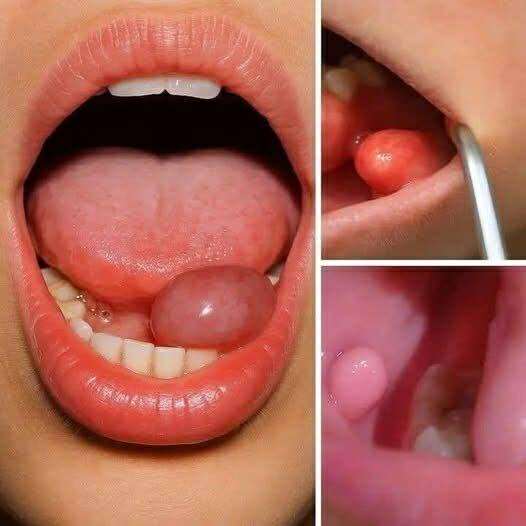Many people may overlook the earliest indications of oral cancer, putting themselves at risk for serious complications. Could a lingering sore or an unusual patch in your mouth be more than simple irritation? While these changes often seem minor, medical experts caution that they can be the first signs of a more serious condition. Because symptoms can be subtle and easily dismissed, staying alert and seeking timely medical advice is crucial.

Understanding Oral Cancer
Oral cancer, sometimes called mouth cancer, can develop in various areas, including the lips, tongue, cheeks, gums, and the roof or floor of the mouth. Early detection significantly increases the likelihood of successful treatment, according to the American Cancer Society. However, the initial signs are often easy to miss, emphasizing the importance of awareness.
This guide highlights the most common early warning signs of oral cancer to help you know when to consult a healthcare professional.
1. Mouth Sores That Persist

Sores that remain in the mouth for more than two weeks may signal early oral cancer. They can appear on the lips, gums, or inner lining of the mouth and are often painless initially.
Action: Any sore that does not heal within two weeks should be examined by a dentist or doctor.
2. White or Red Patches
Changes in color inside the mouth can indicate abnormal tissue growth:
Leukoplakia: White patches that cannot be wiped away; may sometimes become cancerous.
Erythroplakia: Red, velvety patches that are more likely to contain precancerous or cancerous cells.
Mixed lesions: Areas that feature both red and white patches.
Action: Persistent or expanding patches should be evaluated by a professional.
3. Unexplained Bleeding

Bleeding in the mouth without trauma or brushing could indicate a serious issue. While occasional gum bleeding may be harmless, repeated or unexplained bleeding warrants attention.
Action: Consult a healthcare provider if bleeding recurs without clear cause.
4. Lumps, Thickened Areas, or Rough Spots
A new lump, thickened area, or rough texture in the mouth, tongue, or throat may be an early sign of abnormal tissue development. These may initially be painless but can increase in size over time.
Action: Any new growth or change in texture should be checked by a dental or medical
professional.
5. Numbness or Ongoing Pain
Persistent numbness, tingling, or pain in the mouth, lips, or chin—without an obvious cause—may indicate changes in nerve function due to lesions.
Action: Seek medical attention for ongoing numbness or unexplained discomfort.

6. Difficulty Chewing or Swallowing
Pain or discomfort while eating, or feeling that something is stuck in the throat, may indicate lesions affecting the oral cavity or throat. Early-stage head and neck cancers can present with these symptoms.
Action: Consult a healthcare provider if chewing, swallowing, or jaw movement is uncomfortable.
7. Persistent Bad Breath
Chronic bad breath that does not improve with good oral hygiene may indicate underlying tissue changes or infection.
Action: Bring ongoing bad breath to a dentist or doctor for evaluation.
Risk Factors for Oral Cancer
Certain factors increase the risk of developing oral cancer:
- Tobacco use (smoking or chewing)
- Heavy alcohol consumption
- Human papillomavirus (HPV) infection
- Excessive sun exposure (linked to lip cancer)
- Age over 40
- Poor nutrition
If you have one or more risk factors, regular oral screenings are especially important.
The Importance of Routine Checkups
Dentists are often able to detect early signs of oral cancer during routine exams. Visiting a dentist at least twice a year provides an opportunity to identify potential issues before they worsen.
When to Seek Professional Help
Seek medical advice if you notice any of the following symptoms for more than two weeks:
- Persistent sores or patches
- Lumps or unusual growths
- Ongoing pain, numbness, or unexplained bleeding
- Difficulty swallowing or chewing
- Persistent bad breath
Start with a dentist or primary care provider, who may refer you to a specialist if necessary.
Conclusion
Oral cancer is most treatable when detected early. Because its first symptoms are often subtle and painless, awareness, regular dental checkups, and timely evaluation of unusual changes in the mouth are essential. Being proactive about oral health not only protects your well-being but also increases the chances of early diagnosis and successful treatment.
Disclaimer: This article is not intended to be a substitute for professional medical advice, diagnosis or treatment and is for informational purposes only.
Please SHARE this article with your family and friends on Facebook.
Bored Daddy
Love and Peace
